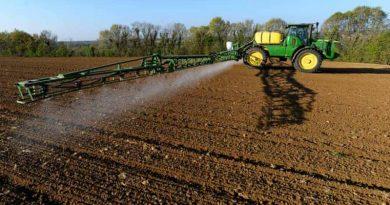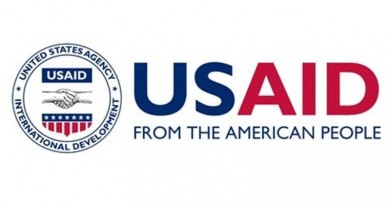BII commits $26.5m to AFEX to boost food security smallholder farmers in Nigeria, Kenya and Uganda
The UK’s development finance institution (DFI) and impact investor, British International Investment (BII), today announced a US$26.5 million commitment to AFEX, the continent’s top commodities platform. AFEX currently runs over 200 warehouses in Nigeria, Kenya, and Uganda, serving over 450,000 farmers. The investment will help structural changes in Africa’s agriculture sector, which will boost food security and greatly assist smallholder farmers.
Today saw the official signing of BII and AFEX’s new collaboration. Ayodeji Balogun, CEO of AFEX Group, Nick O’Donohoe, and Jonny Baxter, British Deputy High Commissioner in Lagos, were present.
Twenty contemporary warehouses will be constructed in key sites across Nigeria, Kenya, and Uganda with the help of BII’s financing. Moreover, warehouse technology and cutting-edge software that records post-harvest price will be scaled by its capital. The lifespan of harvested crops may be extended with the use of clever storage techniques, increasing the amount of food that is accessible.
Up to 200,000 more farmers will be able to access affordable storage and maximize agricultural harvest sales thanks to the extra warehouses, which will provide 230,000 MT of storage space. This may possibly assist improve farmer incomes by more than 200 percent. In order to keep smallholder farmers in business and enable them to continue producing more and better-quality crops for local consumption, it is imperative that they receive appropriate compensation.
In Nigeria, Kenya, and Uganda, agriculture generates 25% of GDP and employs 70% of the labor force, with smallholder and subsistence farmers making up the majority (80%). Farmers currently confront a challenging financial outlook as a result of unstable macroeconomic conditions, restricted access to markets, and inconsistent sales from crop harvests. Extreme weather events and rising input costs have a negative impact on farmers’ incomes, and yields have decreased.
The funds from BII will also be utilized to build a drying facility in Uganda and a soybean processing factory in Ibadan, Nigeria’s third-largest city by population. More than 80 permanent positions and over 700 temporary jobs will be created during the development of the soy processing and storage facilities.
Chief Executive Officer of BII, Nick O’Donohoe, commented on the deal, saying, “According to World Bank estimates, Africa’s food import bill has reached c.US$30 billion in recent decades[1].” For this reason, we must promote technologically advanced businesses like AFEX, which lower import costs by assisting smallholder farmers in increasing the amount of food produced locally and increasing their earnings.
“This investment from British International Investment is a landmark moment in our mission to revolutionize agriculture and elevate food security across Africa,” stated Ayodeji Balogun, CEO of AFEX Group, in reference to the raise. We are greatly expanding smallholder farmers’ access to markets and economic potential by investing new funds in the construction of cutting-edge warehouses and other vital infrastructure. Our goal is to empower Africa to feed itself sustainably and effectively, in line with the UN Sustainable Development Goals. The investment made today not only supports AFEX’s expansion but also creates a more stable and prosperous future for the continent as a whole.
Jonny Baxter, the deputy high commissioner of the United Kingdom in Lagos, said: “I am happy of British International Investment’s contribution, which will boost food security in Nigeria and increase agricultural output. An important component of Nigeria’s economy, the agricultural sector contributes significantly to investment potential and job creation. AFEX received early-stage finance from the UK, and it pleases me to see the company flourishing as it has. We are eager to keep assisting Nigeria’s agricultural industry and the chances it presents for the country’s economic development.
The UN Sustainable Development Goals on Zero Hunger (SDG2), Decent Work and Economic Growth (SDG8), and Responsible Consumption and Production (SDG12) will all benefit from this initiative.




